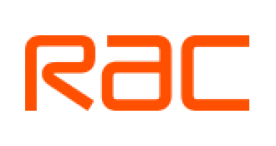Table of Contents
A bank loan essentially allows you to borrow money from a bank. Often bank loans are used to cover larger expenses, such as home improvements or buying a car, but they can be used to consolidate existing debt too. Read on to learn more about getting a loan from a bank.
Missed payments may affect your credit score
How do bank loans work?
Generally, bank loans work the same as personal loans from any other type of lender. After you apply, the bank will review your credit score, history and income to determine how much money to loan you and what annual percentage rate (APR) you qualify for.
Once you get the loan, you’ll pay it back in monthly instalments. Typically, bank loan repayment terms range from about one to seven years but this can vary.
The amount you can borrow will depend on the bank and your individual situation, but you can usually find loans ranging anywhere from £1,000 to £25,000, and often higher. You may be able to borrow more if you are an existing customer, for example.
As well as personal loans for use by individuals, some banks offer business loans to cater to the funding requirements of businesses large and small.
Who can get a loan from a bank?
Some banks may only offer personal loans to their existing customers, while others will accept loan applications whether you’re a customer or not. If you already have an account and are in good standing with your bank, you may be offered a loan with a lower APR or be able to borrow more.
Banks typically require a borrower to have a good credit score, a stable income and a low debt-to-income ratio to take out a loan. If you don’t think you’ll qualify for a bank loan, you can look for ways to improve your credit score which could give you a better chance of getting approved.
» COMPARE: Best personal loans
What can a bank loan be used for?
Bank loans can be used for almost any reason, but common uses include a new car, special occasions or home improvements.
Lenders may allow you to use a personal loan for debt consolidation or to refinance an existing loan. This is when you take out a new, cheaper loan to pay off the debts you already have. Refinancing can make sense if the new loan has a lower rate than your current loan, so you end up paying less interest overall. Remember to factor in any early repayment charges on your existing loan too.
Lenders will typically state that you can’t use a bank loan for certain purposes, such as illegal activities, gambling or buying property, for example.
Is getting a personal loan a good idea?
Depending on what you plan to use it for, a personal loan could be a good idea if it can help you reach your financial goals without putting you in financial jeopardy. It could also help to build up your credit history, provided you make payments on time and effectively manage the rest of your finances.
Borrowing to cover the cost of everyday expenses and bills is unlikely to be a good idea as this indicates that you may struggle to repay the loan.
If you don’t think you could afford to repay the loan on time, getting a loan could do more harm than good as you may find yourself in a cycle of debt. Missed loan payments could affect your credit score and the lender may also charge late payment fees.
If you’re struggling with your finances, it may be worth contacting a debt charity for free help and advice on your situation.
» MORE: What to do if you can’t pay your loan
Applying for a loan from a bank
Some banks allow you to use an eligibility checker to find out how much you can borrow and what rate you might qualify for without affecting your credit score. This is a good idea as submitting an application will trigger a hard credit check, which could have a negative impact on your score.
Once you’ve compared banks and decided which you would like to borrow from, you’ll fill out an application. The bank will then run credit and affordability checks to see whether to accept your application, and if approved, what rate to offer you.
It’s also worth comparing loans from other lenders, as they could be a better option for you than a loan from a bank.
What are the alternatives to a bank loan?
Banks aren’t the only places that offer loans. There are also a wide range of alternative lenders, particularly online, that can provide loans to people in many different circumstances, including those with a bad credit history.
You may also consider other types of loans, such as a secured loan or guarantor loan, that may be easier for someone with poor credit to access.
» COMPARE: Best secured loans
Image source: Getty Images












